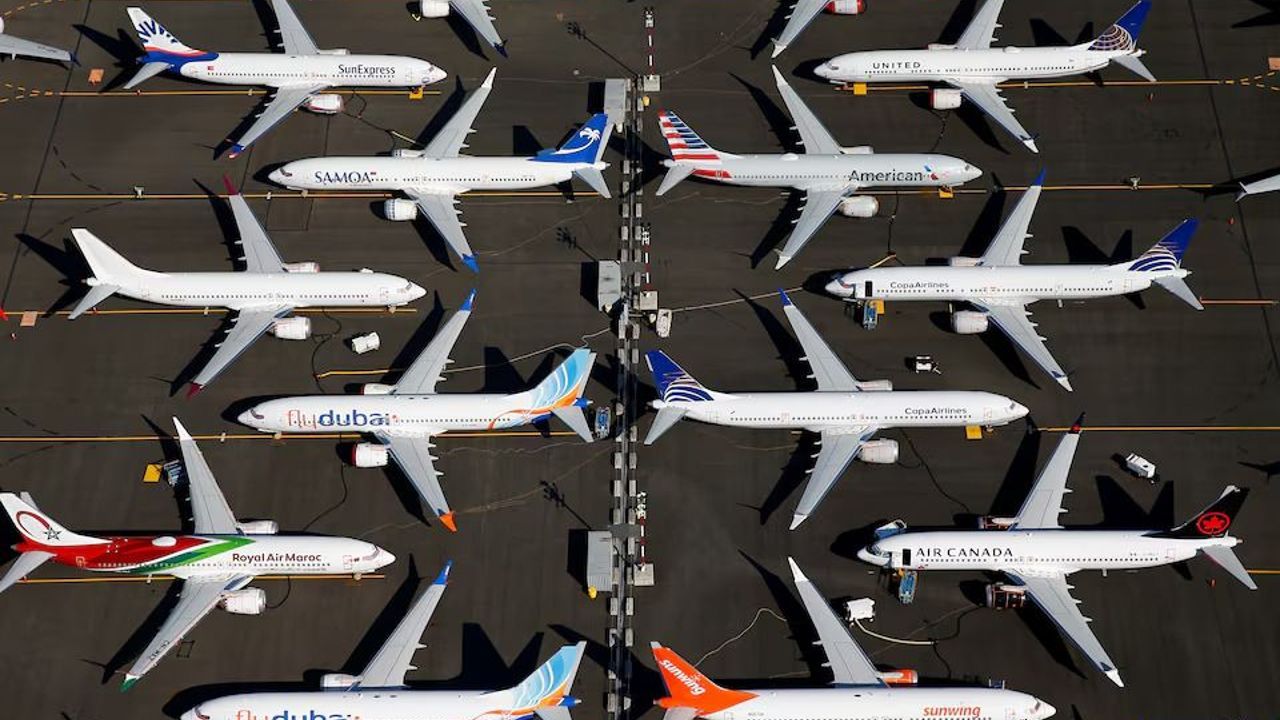Airlines face repercussions as Israel-Iran tensions flare up
Airlines emphasize commitment to closely monitoring the situation and prioritizing the safety of passengers and crew while hoping for a swift return to normalcy in the region

International airlines have been facing repercussions and adjusting their flight plans as a precaution, with tensions rising high between Israel and Iran, leading to apprehensions of World War III.
Hungarian budget airline Wizz Air canceled its flights to Tel Aviv on April 14 and 15 following Iran's attack on Israel on Saturday.
In a statement to Anadolu, Wizz Air confirmed their flights had resumed on April 16 but warned passengers of schedule changes.
They emphasized their commitment to closely monitoring the situation and prioritizing the safety of passengers and crew while hoping for a swift return to normalcy in the region.
British airline EasyJet also suspended its flights to Tel Aviv, including for the summer travel season, until Oct. 27, citing the "ongoing situation" in Israel.
Dutch airline KLM canceled flights to Israel until April 21 and announced it was not flying over Iran and Israel.
German airline Lufthansa has resumed its regular flights to Tel Aviv, Amman and Erbil after briefly suspending them. The company announced that it would cancel flights to Tehran and Beirut until April 18 and not use Iranian airspace.
Air India decided to suspend its flights to Tel Aviv temporarily.
US-based United Airlines suspended its flights to Tel Aviv and announced that travelers who had booked tickets there through May 1 could receive full refunds.
After canceling its flights to Tel Aviv on Saturday, Air Canada announced it would continue to monitor the situation in the region and adjust its flight schedules accordingly.
Change of route
Australian airline Qantas announced it changed its routes to avoid Iranian airspace.
At the same time, Britain’s Virgin Atlantic said it will not fly over Iraq, Iran and Israel and will continue to monitor the situation for possible impacts on its operations.
Spain’s Iberia Express canceled its flights to Tel Aviv on April 14 and 15.
The Philippines advised its citizens to postpone non-essential travel to Israel.
According to the Philippines News Agency (PNA), the Department of Foreign Affairs of the Philippines issued a travel advisory on Israel.
It said the Philippine Embassy in Tel Aviv recommended the indefinite postponement of all non-essential travel from the Philippines to Israel until the situation stabilizes.
Philippine citizens were advised to take "all precautions" if travel to Israel is necessary, and Filipinos in the region were noted to remain vigilant.
The advisory called on Filipinos to coordinate with embassies and consulates as part of "emergency planning."
Iran-Israel tensions
Iran on Saturday launched an airborne attack on Israel in retaliation for an April 1 airstrike on its diplomatic compound in the Syrian capital.
It reportedly fired over 300 drones and missiles, with almost all intercepted by the air defense systems of Israel and its allies – the US, France and the U.K.
Iran claimed some targets were hit.
Israel, in turn, said it would respond to Iran's attack.
Israeli media reported that the government had decided to respond "openly and effectively.”
Source: AA







